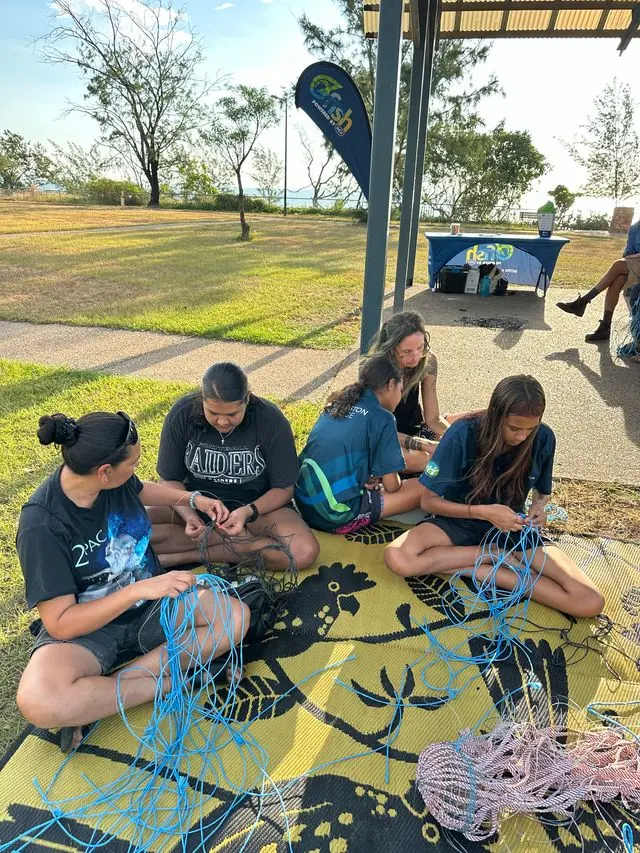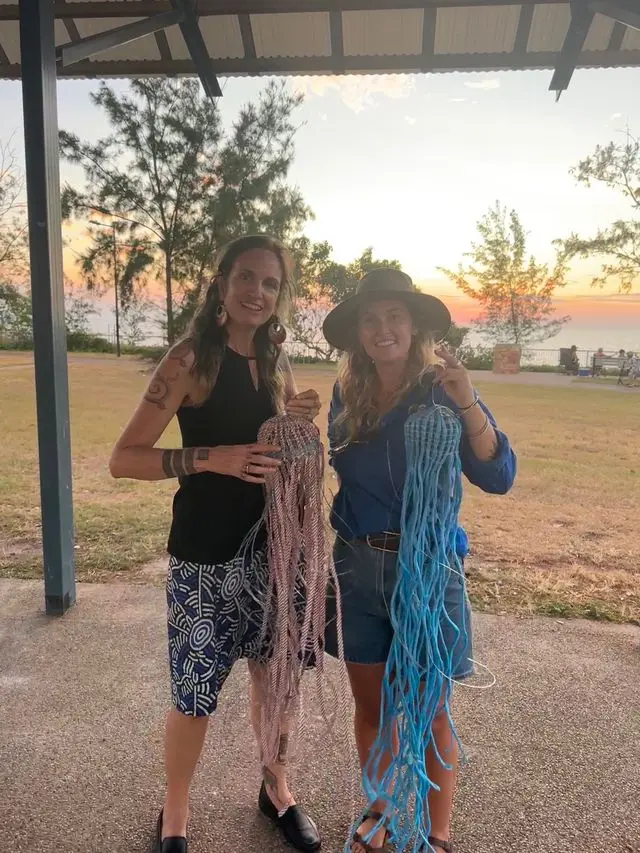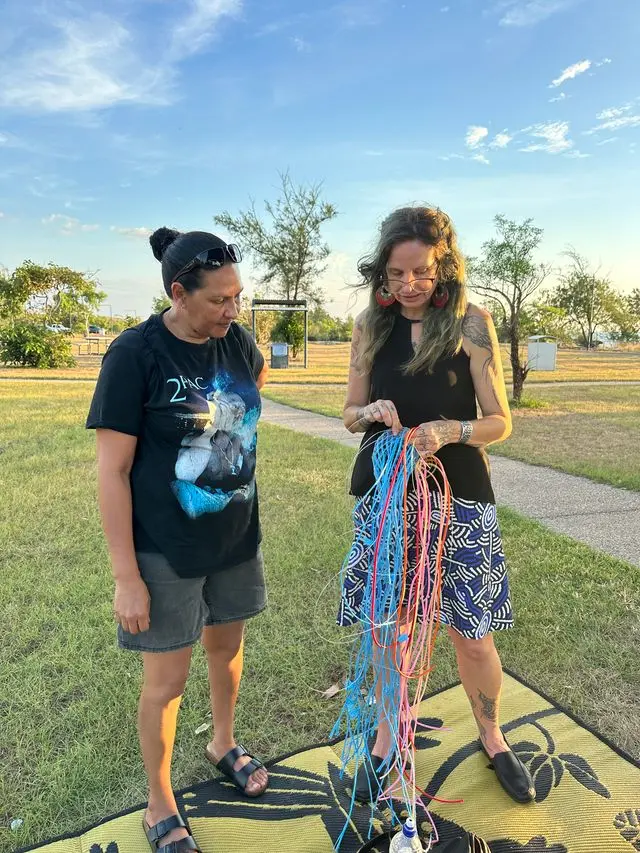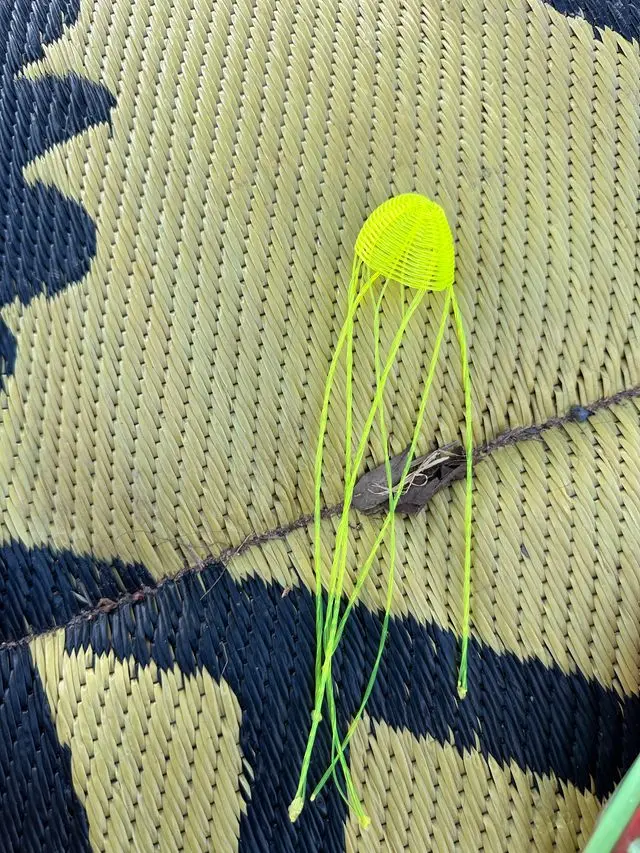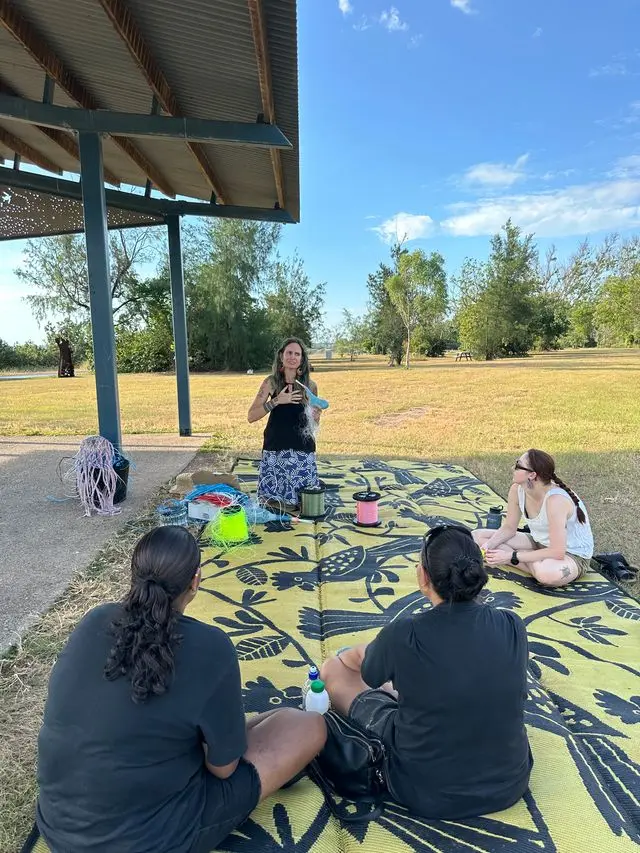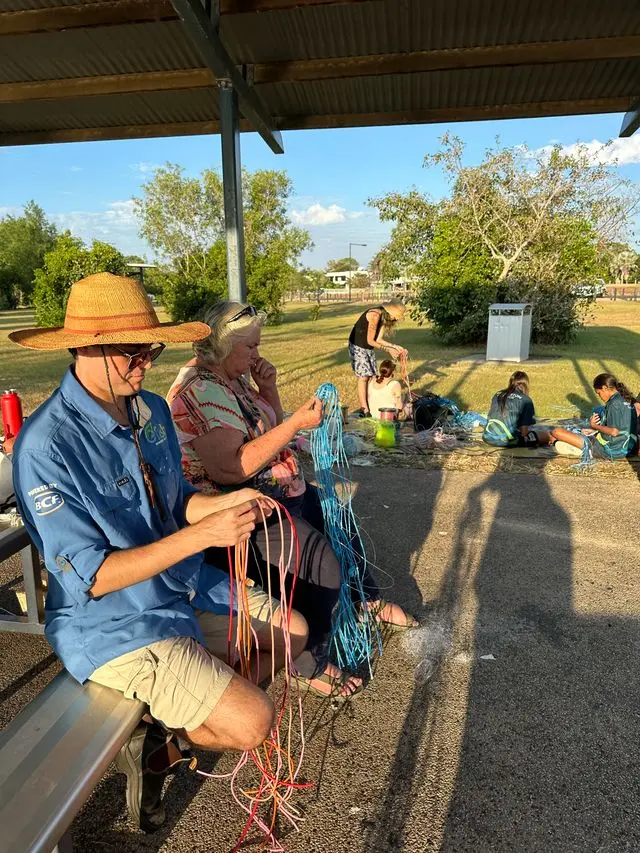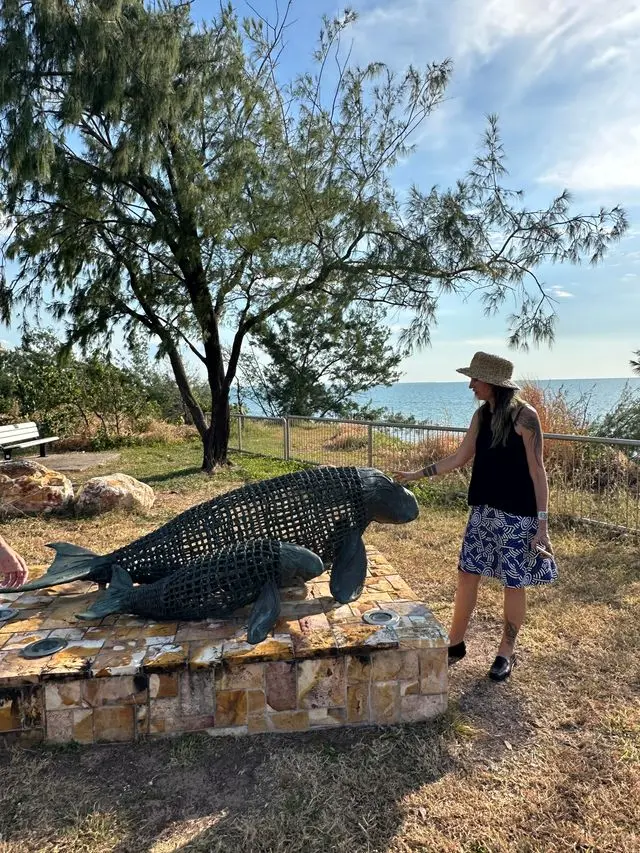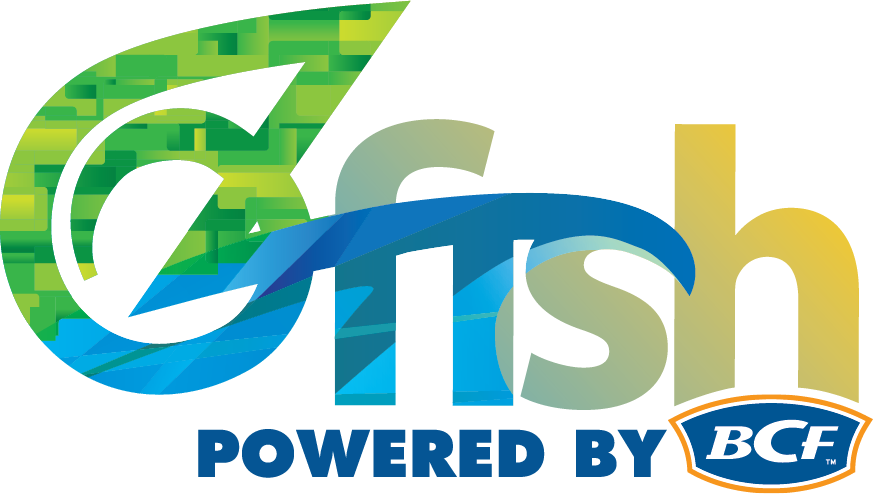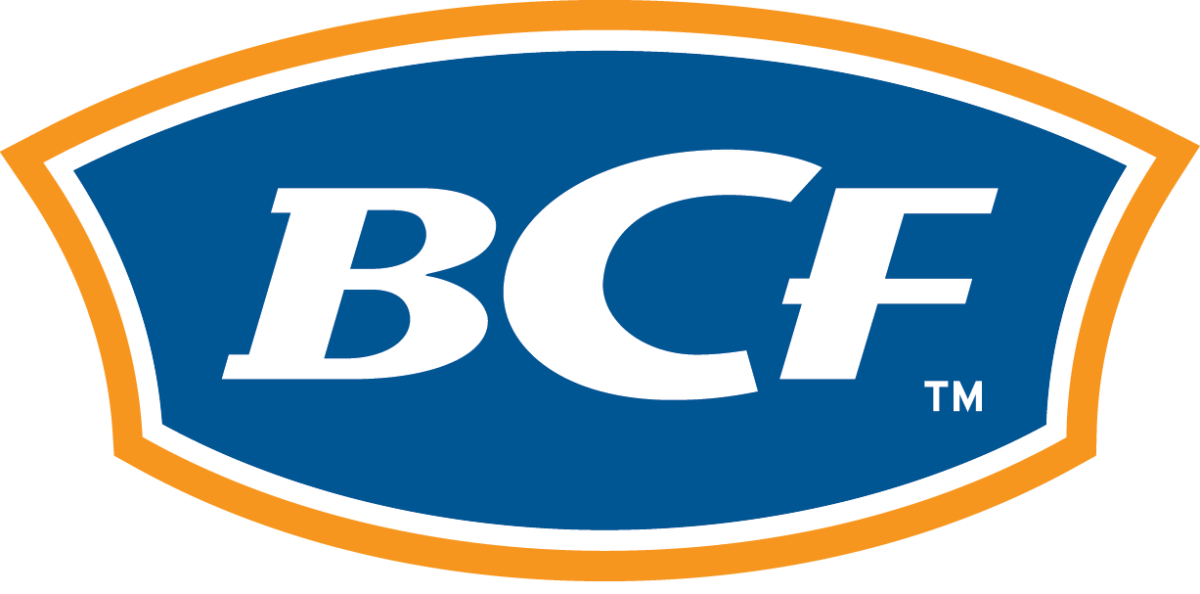Darwin gets crafty with recycled fishing gear
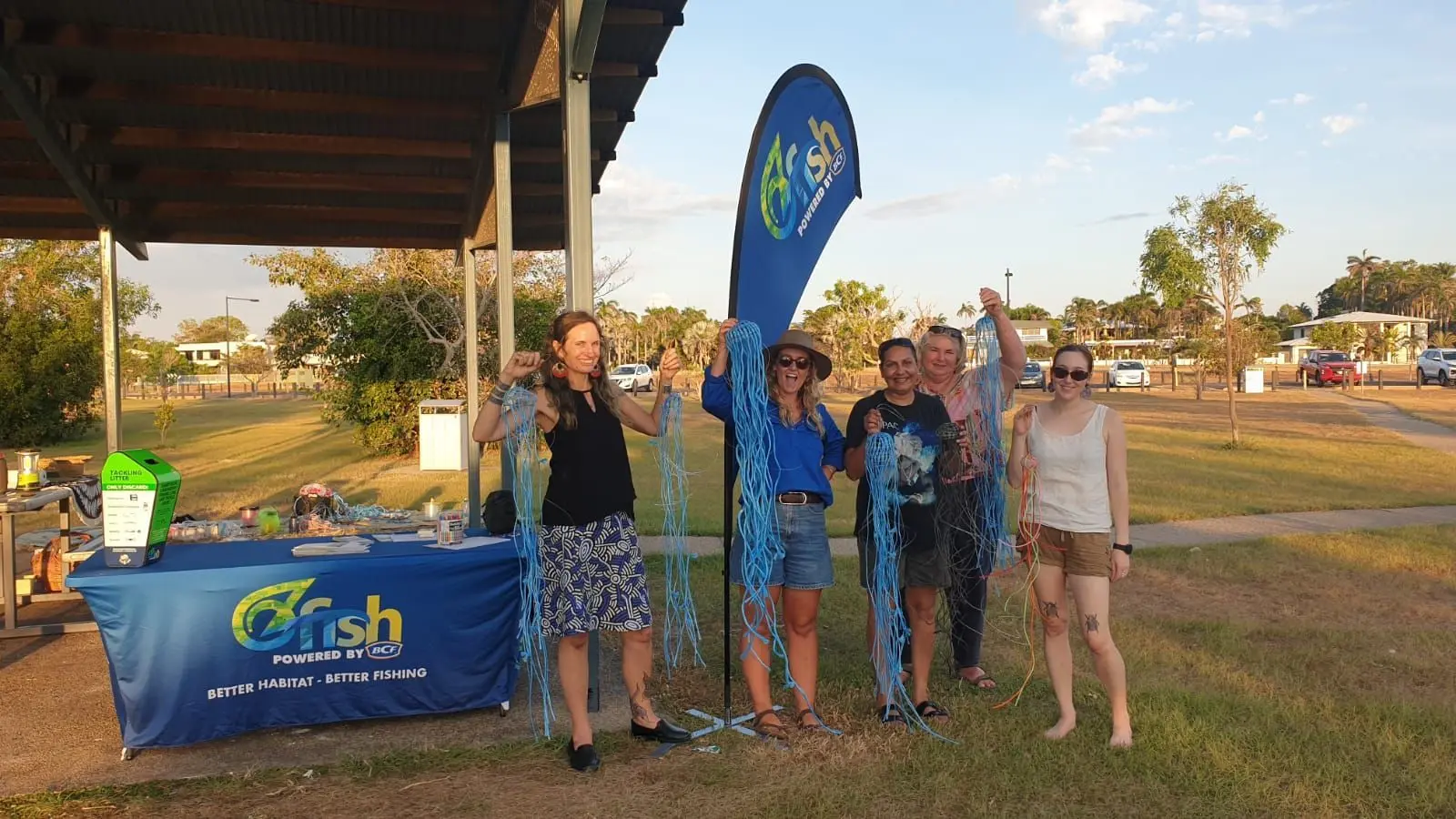
These days, plastic can be recycled and turned into some interesting things like furniture and fashion, but did you ever expect it to be transformed into a sea creature? Okay, they might not have made living animals, but it’s still fun to be a bit creative and bring new life to something old!
At a recent members-only event in Larrakia Country, Darwin Chapter members did just that, creating stunning art while raising awareness about the impact of plastic pollution on our marine life.
Aly De Groot is an award-winning contemporary artist from Northern Australia and has a real talent for turning everyday items into pieces of art. Her woven sculptures, public art installations, and jellyfish jewellery don’t just look stunning – they’re all about reminding us to care for our oceans.
Aly, who has mastered weaving techniques from diverse cultures worldwide, conducted a workshop demonstrating how to craft stunning spotted sea jellies using recycled materials. These materials were sourced from OzFish through its national Tackle Loop program. Aly also incorporated some locally retrieved fishing line from Darwin’s Tangle Bins, adding a truly local touch to her creations.
By the end, everyone walked away with a large, handwoven jellyfish – a unique and beautiful piece of art made from what was once considered trash. The spotted sea jelly was chosen as inspiration because it’s a local Darwin species that plays a key role in the marine ecosystem.
Spotted Sea Jellies:
- They help keep plankton populations in check, ensuring a balanced ecosystem.
- Many creatures, from fish to sea turtles, rely on sea jellies for meals.
- After death, they decompose, replenishing nutrients for marine life.
Harvey Martinez, OzFish Project Officer – NT, organised the Weaving Workshop to thank Darwin members for their support of the Tangle Bin initiative, as well as demonstrate that there are many ways to extend the life of a product to reduce its environmental impact.
“Giving new life to materials that would otherwise have ended up in our oceans, causing issues for aquatic species, was a rewarding experience.
“By adopting sustainable fishing practices and recycling and reusing old gear, we can help protect our oceans and the amazing creatures that live there,” said Harvey.
Giving New Life to Old Tackle
With the help of our volunteers and the recreational fishing community, we’ve been on a mission to recycle discarded fishing line and tackle around Darwin and Palmerston Lakes. For those who might be new to the scene, the NT Tangle Bin Project is one of our pride and joys. Locals can find Tangle Bins around town to dispose of their broken or unwanted tackle. These bins ensure that items destined for landfill avoid finding their way into our oceans and are recycled and given a new life.
Adopt a Tangle Bin
We’re calling on anglers and passionate community members in Darwin and the surrounding areas to “adopt” a Tangle Bin.
Here’s how it works: You’ll be provided with a specialised PPE kit to empty the bin’s contents, then you’ll count what’s been put in and upload the information to our online database, which will contribute to understanding how we can improve the health of our waterways. Currently, we have 3 out of 8 bins adopted, and we need your help to cover the rest.
If you have any old tackle lying around, such as line, hooks, sinkers, and lures, consider sending it to OzFish’s Tackle Loop program. These items are either repurposed or recycled and even turned into beautiful art, just like Aly’s creations!
If you want to be involved in exclusive events like the weaving workshop, consider becoming an OzFish member. Join us today and be part of our vibrant community dedicated to providing healthy environments for native fish species to thrive.

